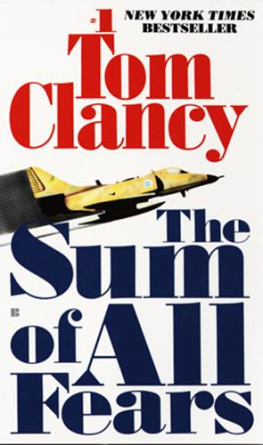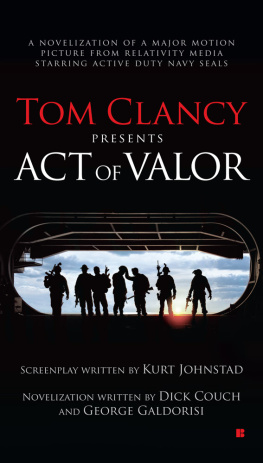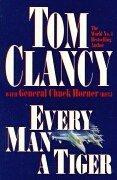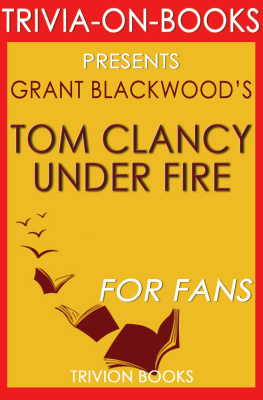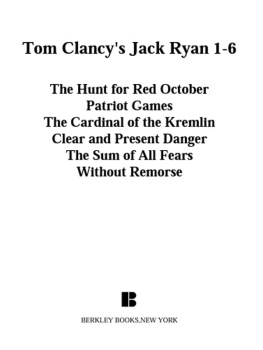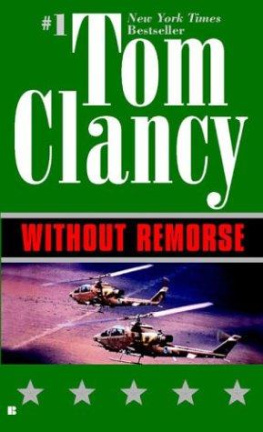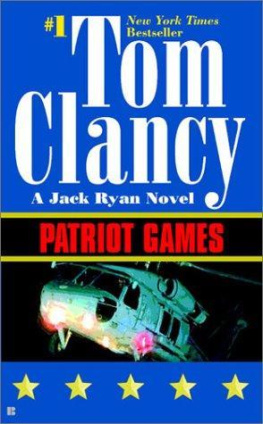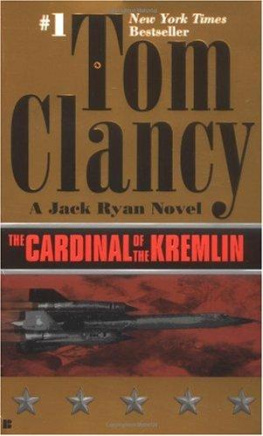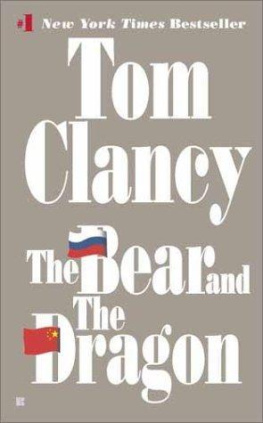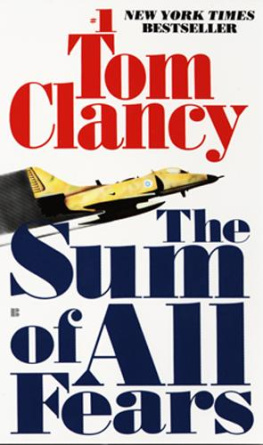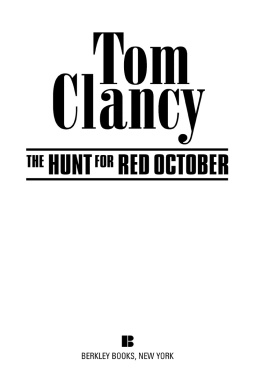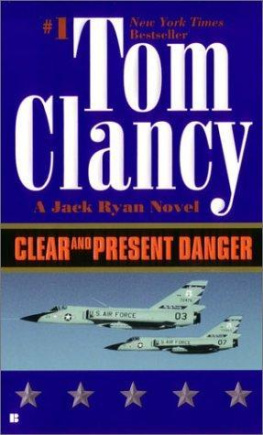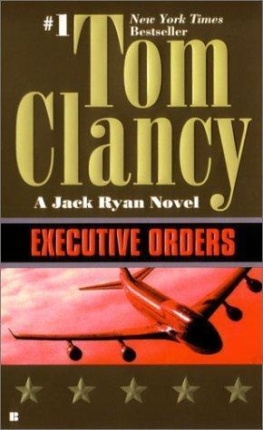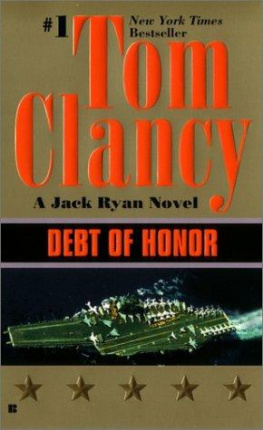8
THE PANDORA
PROCESS
The converted Boeing 747 rotated off the Andrews runway just before sunset. President Fowler had had a bad day and a half of briefings and unbreakable appointments. He would have two more even worse; even presidents are subject to the vagaries of ordinary human existence, and in this case, the eight-hour flight to Rome was coupled with a six-hour time change. The jet lag would be a killer. Fowler was a seasoned enough traveler to know that. To attenuate the worst of it, he'd fiddled with his sleep pattern yesterday and today so that he'd be sufficiently tired to sleep most of the way across, and the VC-25A had lavish accommodations to make the flight as comfortable as Boeing and the United States Air Force could arrange. An easy-riding aircraft, the -25A had its Presidential accommodations in the very tip of the nose. The bedactually a convertible sofawas of decent size and the mattress had been selected for his personal taste. The aircraft was also large enough that a proper separation between the press and the administration people was possiblenearly two hundred feet, in fact; the press was in a closed-off section in the tailand while his press secretary was dealing with the reporters aft, Fowler was discreetly joined by his National Security Advisor. Pete Connor and Helen D'Agustino shared a look that an outsider might take to be blank, but which spoke volumes within the close fraternity of the Secret Service. The Air Force Security Policeman assigned to the door just stared at the aft bulkhead, trying not to smile.
So, Ibrahim, what of our visitor? Qati asked.
He is strong, fearless, and quite cunning, but I don't know what possible use we have for him, Ibrahim Ghosn replied. He related the story of the Greek policeman.
Broke his neck? At least the man was not a plant... that is, if the policeman had really died, and this was not an elaborate ruse of the Americans, Greeks, Israelis, or God only knew who.
Like a twig.
His contacts in America ?
They are few. He is hunted by their national police. His group, he says, killed three of them, and his brother was recently ambushed and murdered by them.
He is ambitious in his choice of enemies. His education?
Poor in formal terms, but he is clever.
Skills?
Few that are of use to us.
He is an American, Qati pointed out. How many of those have we had?
Ghosn nodded. That is true, Commander.
The chance that he could be an infiltrator?
I would say slim, but we must be careful.
In any case, I have something I need you to do. Qati explained about the bomb.
Another one? Ghosn was an expert at this task, but he was not exactly excited about being stuck with it. I know the farmthat foolish old man. I know, I know, his son fought against the Israelis, and you like the cripple.
That cripple saved the life of a comrade. Fazi would have bled to death had he not received shelter in that little shop. He didn't have to do that. That was at a time when the Syrians were angry with us.
All right. I have nothing to do for the rest of the day. I need a truck and a few men.
This new friend is strong, you say. Take him with you.
As you say, Commander.
And be careful!
Insh'Allah. Ghosn was almost a graduate of the American University of Beirut almost because one of his teachers had been kidnapped, and two others had used that as an excuse to leave the country. That had denied Ghosn the last nine credit hours needed for a degree in engineering. Not that he really needed it. He'd been at the top of his class, and learned well enough from the textbooks without having to listen to the explanations of instructors. He'd spent quite a bit of time in labs of his own making. Ghosn had never been a frontline soldier of the movement. Though he knew how to use small arms, his skills with explosives and electronic devices were too valuable to be risked. He was also youthful in appearance, handsome, and quite fair-skinned, as a result of which he traveled a lot. An advance-man of sorts, he often surveyed sites for future operations, using his engineer's eye and memory to sketch maps, determine equipment needs, and provide technical support for the actual operations people, who treated him with far more respect than an outsider might have expected. Of his courage there was no doubt. He'd proven his bravery more than once, defusing unexploded bombs and shells that the Israelis had left in Lebanon , then reworking the explosives recovered into bombs of his own. Ibrahim Ghosn would have been a welcome addition to any one of a dozen professional organizations anywhere in the world. A gifted, if largely self-taught engineer, he was also a Palestinian whose family had evacuated Israel at the time of the country's founding, confidently expecting to return as soon as the Arab armies of the time erased the invaders quickly and easily. But that happy circumstance had not come about, and his childhood memories were of crowded, insanitary camps where antipathy for Israel had been a creed as important as Islam. It could not have been otherwise. Disregarded by the Israelis as people who had voluntarily left their country, largely ignored by other Arab nations who might have made their lot easier but had not, Ghosn and those like him were mere pawns in a great game whose players had never agreed upon the rules. Hatred of Israel and its friends came as naturally as breathing, and finding ways to end the lives of such people was his task in life. It had never occurred to him to wonder why.
Ghosn got the keys for a Czech-built GAZ-66 truck. It wasn't as reliable as a Mercedes, but a lot easier to obtainin this case it had been funnelled to his organization through the Syrians years before. On the back was a home-built A-frame. Ghosn loaded the American in the cab with himself and the driver. Two other men rode on the loadbed as the truck pulled out of the camp.
Marvin Russell examined the terrain with the interest of a hunter in a new territory. The heat was oppressive, but really no worse than the Badlands during a bad summer wind, and the vegetationor lack of itwasn't all that different from the reservation of his youth. What appeared to others as bleak was just another dusty place to an American raised in one. Except here they didn't have the towering thunderstormsand the tornados they spawnedof the American Plains. The hills were also higher than the rolling Badlands . Russell had never seen mountains before. Here he saw them, high and dry and hot enough to make a climber gasp. Most climbers, Marvin Russell thought. He could hack it. He was in shape, better shape than these Arabs.
The Arabs, on the other hand, seemed to be believers in guns. So many guns, mostly Russian AK-47s at first, but soon he was seeing heavy anti-aircraft guns, and the odd battery of surface-to-air missiles, tanks, and self-propelled field guns belonging to the Syrian army. Ghosn noted his guest's interest, and started explaining things.
These are here to keep the Israelis out, he said, casting his explanation in accordance with his own beliefs. Your country arms the Israelis, and the Russians arm us." He didn't add that this was becoming increasingly tenuous.
Ibrahim, have you been attacked?
Many times, Marvin. They send their aircraft. They send commando teams. They have killed thousands of my people. They drove us from our land, you see. We are forced to live in camps that
Yeah, man. They're called reservations where I come from. That was something Ghosn didn't know about. They came to our land, the land of our ancestors, killed off the buffalo, sent in their army, and massacred us. Mainly they attacked camps of women and children. We tried to fight back. We killed a whole regiment under General Custer at a place called the Little Big Hornthat's the name of a riverunder a leader named Crazy Horse. But they didn't stop coming. Just too many of them, too many soldiers, too many guns, and they took the best of our land, and left us shit, man. They make us live like beggars. No, that's not right. Like animals, like we're not people, even, 'cause we were in a place they wanted to have, and they just moved us out, like sweepin' away the garbage.

